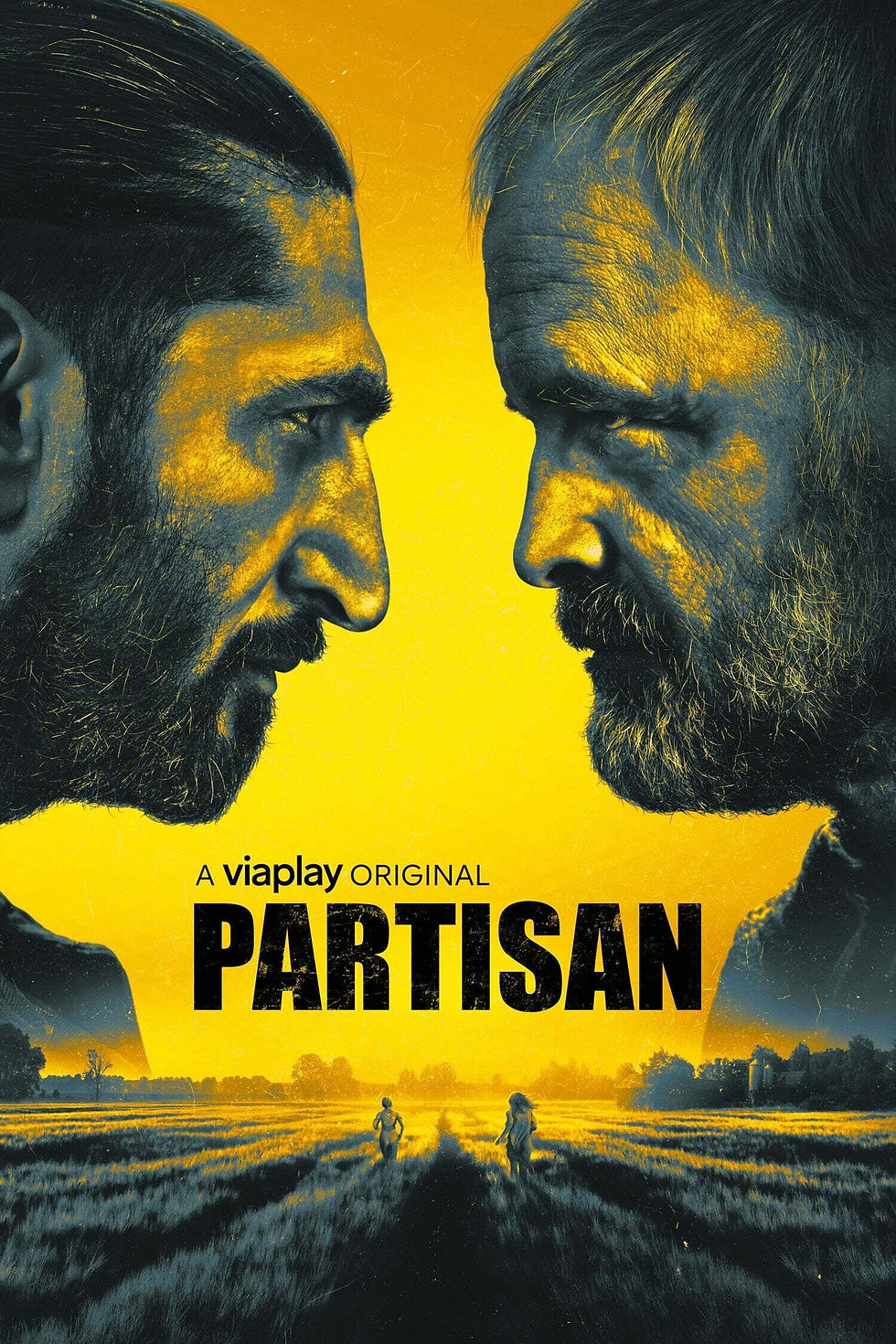Amir Chamdin: Learning by Doing
- Stream Close Up
- Sep 22
- 4 min read
Amir Chamdin’s creative life began long before Infinite Mass or his first film set. It started in front of the television. As a kid growing up in Sweden in the 1970s and ’80s, he was glued to crime shows and westerns on the country’s two state-run channels. Thursdays meant police dramas like Kojak and Baretta; Fridays were for westerns. Later came Hill Street Blues, a revelation in ensemble storytelling.
“I think that hour was the big hour you waited for the whole week in school,” Chamdin recalled on Stream Close Up, remembering the classroom’s “fun hour” when kids would stage plays or music. Coupled with nights of VHS rentals rewatching tapes three times before returning them those rhythms of performance and visual storytelling shaped his early imagination.
By his late teens, Chamdin found another outlet: music. He co-founded the hip-hop group Infinite Mass, which emerged in Stockholm’s club and record-store scene in the early 1990s. “We started the band, but that was more or less because all these people came together as solo artists and said, well, isn’t it easier if we help each other, and start a band? So the idea was more of a community. A collective,” he said.
That collaborative energy fueled their first album and eventually international tours. By 2001, Infinite Mass was playing festivals, riding the wave of a new European hip-hop movement. It was within Infinite Mass that Chamdin first stepped behind the camera. Initially he was just curious, watching directors on set, hanging around editing suites. By 1998 he decided to try it himself, directing the band’s video Enter the Dragon. The clip was banned from MTV when the wrong nighttime cut was aired, but for Chamdin it was a breakthrough. “From then on, I got the first job doing Helicopters. I did two videos with them in New York. So that kind of kicked off my career as a director,” he recalled.
With no formal film school, he taught himself through practice. “I was doing a music video, one music video a month at the same time as we were touring. So after like one, two years, I had 20 or 30 music videos,” he said. The repetition honed his craft. Commercial spots soon followed, including campaigns for H&M featuring stars like Gisele Bündchen and Bryan Ferry. Those sharpened his eye for quick storytelling and showcased his expertise melding highly stylised imagery and music.
His first feature, God Willing (Om Gud vill, 2006), was a black-and-white love story he both wrote and starred in. Directing and performing alongside Nina Persson of Cardigan’s fame who is a revelation in the role. It marked the moment he felt able to call himself a director: “That was the first time I felt like… now I kind of call myself director.”

Chamdin followed with Cornelis (2010), a biopic of Swedish troubadour Cornelis Vreeswijk that topped the box office in Sweden and Norway. Perfectly cast featuring late Turbonegro frontman Hank Von Hell aka Hans-Erik Dyvik Husby as Cornelius. It once again demonstrates how Amir leverages his innate sense for music into his productions. That same year he also released the documentary I’m In The Band, which chronicled the hard-rock chaos and brotherhood of The Hellacopters. The film cemented his ability to shift fluidly between narrative and documentary, music and cinema.
Later came Hassel (2017), which he described as “a Swedish spaghetti western in a new package,” with Stockholm itself playing a central role: “For me, bridges and islands, that is Stockholm. It’s a big town, a small town, in different communities with weird bridges. If you look at Stockholm from above… this is a Stockholm series as much as The Sopranos is a New Jersey series.”

In 2020, Chamdin returned to series with Partisan, a Viaplay original that won Best Series at Cannes International Series Festival. The show combined social commentary with thriller tropes, cementing his reputation as one of the most inventive voices in Scandinavian television.
Three years later came Börje The Journey of a Legend (2023), a high-profile biographical drama about Swedish ice hockey star Börje Salming. Starring Valter Skarsgård, Hedda Stiernstedt, and Jason Priestley, the series brought Chamdin back to character-driven storytelling, this time in the context of a national icon whose legacy resonates far beyond sports.
Chamdin impressively broadened his artistic scope with Gustavia (2024), his debut as a librettist and director for the Royal Swedish Opera. The project, centered on Gustav Badin, reflects his interest in history, performance, and the interplay of music and narrative. It also highlights his willingness to leap into entirely new forms of storytelling.
Looking ahead, he is attached to direct Corleone, an international action-thriller co-produced by partners in the U.S., Italy, and Germany. The film signals his expansion into global production, scaling up from Scandinavian crime to a broader canvas. Details are still under wraps, but the project places him squarely in the world of international genre cinema.
For all his success, Chamdin is reluctant to rest on labels. “I think when somebody else names you a director, then you are a director. But then in the end, a director is nothing. You want to be a filmmaker. And that takes time. Hopefully, soon I will be a filmmaker, but that’s my goal.”
It's no surprise that Amir can navigate the space where music meets cinema, that he is equally adapt in his handling of drama shows how far he has come on his amazing journey as a filmmaker.
👉 Listen to Amir Chamdin’s full conversation on Stream Close Up to hear him talk about Infinite Mass, God Willing, and how Stockholm became his cinematic playground.




Comments